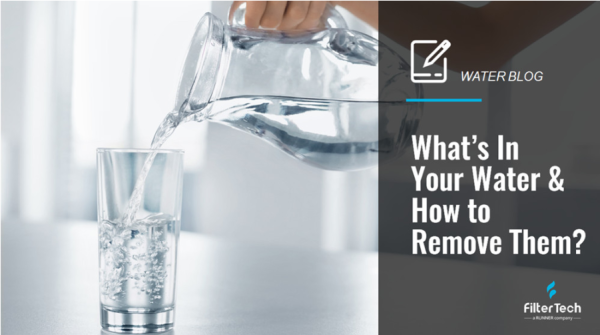
According to a WHO report published on 21 March 2022, around 2 million people use contaminated water sources for drinking water. About 485,000 people die every year from waterborne diseases such as dysentery, cholera, typhoid, diarrhea, and polio. So, do people know the relationship between water and health?
● What is in drinking water?
Clean drinking tap water is valuable resource but unfortunately due to environmental pollution, chemical contaminants find their ways entering into our water supplies. Tap water has been shown to contain heavy metals, additives, chlorination by-products, pesticides, arsenic, radon, rocket fuel and so on. It is also possible for water to travel through decaying pipes allowing harmful chemicals into the water. It is estimated that 140 chemicals are found in tap water in the United States, which is not regulated by the EPA.
● Water and health
Absent, inadequate, or inappropriately managed water and sanitation services expose individuals to preventable health risks, such as gastrointestinal illnesses, nervous system or reproductive effects, and chronic diseases such as cancer.
During the seven most common waterborne diseases in the world, diarrhea is the most common symptom. Research shows diarrhea to be the second leading cause of death among children under the age of five. Overall, it is the leading cause of death among children, ahead of malaria, AIDS and measles.
In Australia and the U.S., there have been cases where microbe contaminants such as cryptosporidium and giardia have caused outbreaks resulting in illnesses.
| Germs | Chemicals | |
| Contaminants | Cryptosporidium, Legionella, Campylobacter, Norovirus, E. coli O157, Rotavirus, Enterovirus, Salmonella, Giardia, Shigella, Hepatitis, A virus | Arsenic, Nitrate, Copper, Radon, Lead |
| Related illnesses | Skin discoloration, Organ damage, Developmental or reproductive effects, Chronic, Longer-term conditions such as cancer | Stomach pain, Vomiting, Diarrhea, Headache, Fever, Kidney failure, Hepatitis |
● How to remove contaminants?
By installing a water filtration system in your home, you can reduce the incidence as well as the presence of many heavy metals and other contaminants in the water.
A national standard has been issued in the United States to verify the ability of a water treatment system to remove up to 15 emerging contaminants, including certain drugs, pesticides, flame retardants, and detergents, called the NSF/ANSI 401: Emerging Contaminants/Incidental Compounds.
From pitchers and faucet-mount filters to refrigerators and countertop units, NSF/ANSI 401 filters include several types of point-of-use (POU) and point-of-entry (POE) systems. It has been proven that reverse osmosis systems with carbon medium are a highly effective way to remove impurities from water.
Finding a reliable water filter provider with good expertise in technological innovation to obtain the highest standard of purification and safe and healthy drinking water. Filter Tech provides many different water filter systems including compact reverse osmosis system, certified with international standards such as NSF, CE, UL, etc.
Original Source: https://www.filtertechpurifier.com/news/whats-in-your-water-and-how-to-remove-them-filter-tech/
Media Contact
Company Name: Filter Tech
Email: Send Email
Address:302-308, Siming Industrial Park, Tong’an Industrial Concentration District
City: Xiamen
Country: China
Website: https://www.filtertechpurifier.com/

